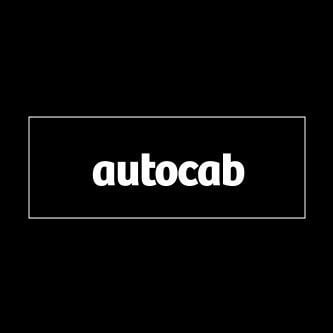Description

Eber

TaxiCaller
Comprehensive Overview: Eber vs TaxiCaller
Eber and TaxiCaller are both platforms designed for transportation and ride-hailing services, but they cater to different segments of the market and offer unique features tailored to their target audiences.
a) Primary Functions and Target Markets
Eber:
- Primary Functions: Eber is a customizable and scalable ride-hailing solution designed for businesses looking to establish their own taxi or ride-sharing service. It offers features like real-time ride tracking, fare estimation, secure payment options, driver and fleet management, and customer analytics.
- Target Markets: Eber targets businesses and entrepreneurs who want to launch and operate their own ride-hailing or logistics services. This includes everything from startups to established enterprises in various sectors such as taxi services, corporate transport, and logistics.
TaxiCaller:
- Primary Functions: TaxiCaller is a cloud-based dispatch system that provides tools for managing taxis, ride-hailing services, and other types of fleets. It features booking apps, dispatch systems, GPS tracking, automated fare calculations, reporting tools, and integration with third-party applications.
- Target Markets: TaxiCaller primarily serves taxi companies, shuttle services, and other fleet operators. It is designed for businesses needing an efficient dispatch solution, ranging from small taxi firms to larger, more complex operations.
b) Market Share and User Base
Eber:
- Market Share: Eber is more of a niche solution compared to giants in the ride-hailing industry like Uber or Lyft. It is popular among businesses seeking tailored ride-hailing services where they have control over branding, operations, and data.
- User Base: Its user base includes business clients across various regions looking to deploy customized transportation services, often in areas not dominated by global ride-hailing apps or where there is a need for specialized services.
TaxiCaller:
- Market Share: TaxiCaller has a presence in multiple countries and is recognized among traditional taxi services transitioning to digital dispatch systems. It's well-established in Europe and North America, catering to a diverse range of fleet operators.
- User Base: The user base predominantly consists of traditional taxi services, shuttle operations, and small to medium-sized transport companies looking to modernize their fleet management and customer service through innovative technology.
c) Key Differentiating Factors
Eber:
- Customization: Eber offers significant customization options, allowing businesses to tailor the platform to their specific requirements, which is a major draw for businesses wanting distinct features or branding.
- Flexibility in Usage: It's ideal for companies across different industries, from logistics to corporate transport, offering various modules that cater to different operational needs.
- End-to-End Solution: Provides a full suite from customer apps to driver apps, admin panels, and analytics, highly scalable for businesses looking to grow their operations.
TaxiCaller:
- Ease of Use: Known for its user-friendly interface and straightforward setup, making it accessible for taxi companies transitioning from traditional systems.
- Comprehensive Dispatch System: Its robust dispatching capabilities are a key feature, appealing to fleets of all sizes that require efficient and reliable dispatching.
- Global Reach and Support: TaxiCaller operates in numerous countries and provides multilingual support, making it an attractive option for businesses with a global reach.
In summary, while both Eber and TaxiCaller offer ride-hailing and fleet management solutions, Eber is more suited for businesses looking for comprehensive customization and control over their ride-hailing operations, whereas TaxiCaller is ideal for traditional fleets looking to improve efficiency through modern dispatch technology. Their market presence and user base reflect these distinctions, with Eber focusing on customization and growth scalability, and TaxiCaller emphasizing ease of use and robust dispatch functionality.
Contact Info

Year founded :
2015
Not Available
Not Available
Singapore
Not Available

Year founded :
2011
+46 8 559 219 50
Not Available
Sweden
http://www.linkedin.com/company/taxicaller
Feature Similarity Breakdown: Eber, TaxiCaller
When comparing Eber and TaxiCaller, both of which are platforms designed to facilitate ride-hailing and taxi management, it's important to identify how they align and differ in terms of core features, user interfaces, and unique functionalities.
a) Core Features in Common
Both Eber and TaxiCaller share several core features that are essential for ride-hailing and taxi management platforms:
-
Real-time GPS Tracking: Both platforms offer GPS tracking to monitor vehicle locations in real time, which is crucial for both operators and passengers.
-
Booking and Dispatch System: They provide booking systems that allow customers to request rides and operators to dispatch drivers efficiently.
-
Driver and Vehicle Management: Features that allow the management of driver profiles, vehicle allocation, and availability status are present in both systems.
-
Passenger App: Both offer a passenger-facing app that enables users to book rides, track their ride status, and make payments.
-
Payment Processing: Integration with various payment gateways allows passengers to pay through multiple modes, such as credit/debit cards and digital wallets.
-
Fare Estimation and Calculation: Both platforms provide fare estimation tools based on distance and time traveled, ensuring transparency in pricing for customers.
-
Notifications and Alerts: They include systems for sending notifications to passengers and drivers about ride status, promotions, or updates.
b) User Interface Comparison
-
Eber: It typically offers a sleek and modern user interface with intuitive navigation that focuses on ease of use for both passengers and drivers. The design often emphasizes clarity, using straightforward menus and processes to facilitate quick bookings and route management.
-
TaxiCaller: Known for having a more functional approach, the UI of TaxiCaller might prioritize operational efficiency, particularly for dispatchers and fleet managers. While the passenger app is user-friendly, the admin and dispatcher interfaces are often feature-rich, which could present a steeper learning curve for new users.
c) Unique Features
-
Eber:
- Integration with Multiple Services: Eber might provide more integration options with other services or platforms, such as food delivery or logistics solutions, making it versatile for operators looking to offer more than just passenger transport.
- Custom Branding: Allows businesses to white-label the app, offering more customization in terms of branding and feature set tailored to the specific needs of the operator.
-
TaxiCaller:
- Advanced Dispatching Features: TaxiCaller could stand out with detailed dispatching features that allow complex fleet management, including options for service sectors such as non-emergency medical transportation.
- Comprehensive Reporting Tools: More robust data analytics and reporting tools to provide operators with deeper insights into their business operations.
- Multi-channel Booking: Offers more varied booking options through phone, web, and app, which can cater to different customer preferences.
In conclusion, while Eber and TaxiCaller share several fundamental features essential for ride-hailing services, they differ in terms of their approach to user interfaces and the unique features they offer, which cater to specific operational needs or business models.
Features

Not Available

Not Available
Best Fit Use Cases: Eber, TaxiCaller
Eber Use Cases:
a) Eber’s Best Fit:
Eber is designed for businesses that require a comprehensive loyalty management system. It is particularly suitable for:
- Retail Chains and Restaurants: Businesses with multiple locations looking to enhance customer engagement and loyalty through personalized rewards programs.
- Service Industry: Companies like salons, gyms, and spas that want to maintain customer retention through subscription and membership management.
- Start-ups and SMEs: Small to medium-sized enterprises looking to leverage data analytics for customer insights to drive personalized marketing campaigns.
Eber offers a robust platform for managing customer relationships, offering rewards, and running promotions, making it ideal for businesses focused on relationship-based growth strategies.
b) TaxiCaller’s Preferred Use Cases:
TaxiCaller is a scalable dispatch system and is best suited for:
- Taxi Companies and Ride-sharing Start-ups: Companies that need reliable and efficient dispatch systems to manage bookings, driver assignments, and real-time tracking.
- Private Hire and Limo Services: Businesses that require sophisticated scheduling and billing systems, often catering to high-end clientele with specific preferences.
- Shuttle Services and Non-emergency Medical Transport: Organizations that need to coordinate transport services in specific areas with the ability to track vehicles and manage bookings efficiently.
TaxiCaller excels in providing strong logistics management, making it preferred for companies needing detailed fleet management and dispatch coordination.
d) Catering to Different Industry Verticals and Company Sizes:
-
Eber’s Industry and Company Scope:
- Eber aligns well with industries where customer relationships are pivotal for success, including retail, hospitality, and beauty. Its ability to offer personalized marketing and incentive programs helps businesses stand out in competitive landscapes.
- It caters to both small businesses and larger chains by offering scalable solutions that can grow with business needs, focusing on enhancing customer interactions and retention metrics.
-
TaxiCaller’s Industry and Company Scope:
- TaxiCaller targets transportation industries, specifically within dispatch and fleet management. It provides solutions for ground transportation services that need efficient operations to meet customer demand.
- It’s adaptable for use by small local operators as well as larger fleet services, offering customizable features appropriate for operators with a few vehicles to those with a large fleet requiring complex scheduling techniques.
Both platforms cater to industries that fundamentally rely on customer engagement and operational excellence, but their specialized functionalities align them with distinct business needs and sizes.
Pricing

Pricing Not Available

Pricing Not Available
Metrics History
Metrics History
Comparing teamSize across companies
Conclusion & Final Verdict: Eber vs TaxiCaller
Conclusion and Final Verdict for Eber vs. TaxiCaller
When choosing a comprehensive taxi dispatch solution, it's crucial to weigh the strengths and limitations of each product to determine which offers the best value for various needs and business models.
a) Best Overall Value
Considering all factors, the best overall value depends largely on the specific requirements of your business. Both Eber and TaxiCaller offer strong features but cater to slightly different needs:
-
Eber: Often considered an excellent option for businesses looking for a highly customizable solution that can be tailored to niche markets, Eber provides robust integrations and flexible features suitable for more personalized taxi services or larger fleets looking for advanced fleet management capabilities.
-
TaxiCaller: Typically praised for its user-friendly interface and ease of integration, TaxiCaller shines with its straightforward, cost-effective approach, making it ideal for small to medium-sized fleets or businesses that want a reliable, out-of-the-box solution that is ready to implement quickly.
Therefore, if easy setup and affordability with strong performance in core functionalities are the top priorities, TaxiCaller might offer the best overall value. However, if advanced customization and scalability are more important, particularly for larger operations, Eber could be the more valuable choice.
b) Pros and Cons
Eber:
-
Pros:
- Highly customizable platform suits diverse and complex requirements.
- Superior integration capabilities with a wide range of third-party apps.
- Robust analytics and reporting features for data-driven decision-making.
- Offers scalable solutions suitable for fast-growing businesses.
-
Cons:
- May require a steeper learning curve due to its advanced features and customization options.
- Potentially higher costs due to customization and integration needs.
- Might necessitate a longer implementation time compared to simpler solutions.
TaxiCaller:
-
Pros:
- Simple, intuitive interface and easy to deploy.
- Competitive pricing model, suitable for small to medium businesses.
- Reliable core features for dispatching, booking, and vehicle management.
- Extensive customer support and user resources available.
-
Cons:
- Less customizable compared to Eber, which may limit flexibility for specialized needs.
- Some advanced features might require additional cost or may not be available.
- May not scale as easily for very large operations or highly specialized services.
c) Recommendations for Users Deciding Between Eber vs. TaxiCaller
-
Assess Business Size and Complexity: Determine whether your operation is small, medium, or large, and whether your service model requires extensive customization. Choose Eber if you need a highly tailored solution for a large fleet. Opt for TaxiCaller if your business is small-to-medium and you prefer a straightforward setup.
-
Budget Considerations: Evaluate your budget for both initial setup and ongoing expenses. TaxiCaller might be more budget-friendly initially, while Eber, though potentially more costly, offers more flexibility for expansion and modification.
-
Implementation and Support Needs: Consider your team's technical expertise and the level of support you may need. TaxiCaller’s easy-to-navigate platform and robust support might be beneficial for those new to such systems, while Eber might require more technical knowledge and planning.
-
Future Growth Plans: If you anticipate rapid growth or require advanced features for scaling, Eber provides more extensive features and flexibility to accommodate these needs. For those with stable growth or simpler requirements, TaxiCaller’s offerings are likely sufficient.
Ultimately, the decision hinges on aligning the software’s capabilities with your business goals and operational demands. Taking the time to evaluate these aspects carefully will help ensure you choose the solution that propels your business forward effectively.
Add to compare
Add similar companies



